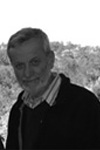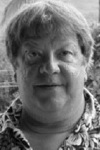2008 principles of fluorescence techniques
apr 9 - 11, 2008 | chicago, ilFluorescence techniques are being used and applied increasingly in academics and industry. The Principles of Fluorescence Techniques workshop will outline the basic concepts of fluorescence techniques and the successful utilization of the currently available commercial instrumentation.
The workshop is designed for students who utilize fluorescence techniques and instrumentation and for researchers and industrial scientists who wish to deepen their knowledge of fluorescence applications. Key scientists in the field will deliver theoretical lectures. The lectures will be complemented by the direct utilization of steady-state and lifetime fluorescence instrumentation and confocal microscopy for FLIM and FFS applications.
Participants are recommended to have at least a bachelor’s degree in the life sciences, physical sciences or engineering before attending. Interactions between participants and lecturers will be fostered. Students will have ample opportunity to personally explain their research programs and ask questions about the applicability of specific fluorescence techniques to their workshop lecturers. Topics addressed in this workshop include:
- Basic Definitions and Principles of Fluorescence
- Steady-state Fluorescence (spectra, kinetics, polarization)
- Time-resolved Fluorescence (lifetime, anisotropy, time-resolved spectra)
- Fluorescence Probes
- Instrumentation
- Data Manipulation and Data Analysis
- Confocal and Multiphoton Fluorescence Microscopy
- FFS, Fluorescence Fluctuation Spectroscopy
- FLIM, Fluorescence Lifetime Imaging
- Particle Tracking
- Single Molecule Imaging
- Super-resolution techniques, STED
The number of participants to the course is limited:
Lectures: Limited to a total of 70 participants (auditorium size).
Practicals: Limited to a total of 30 participants (interactive, small-group sessions).
Participation is granted on a first-registered, first-served basis.
Tentative Agenda
June 14
Prof. David M. Jameson
Prof. David M. Jameson
Prof. Theodore Hazlett
Prof. Enrico Gratton
Prof. Enrico Gratton
Prof. Theodore Hazlett
Prof. Enrico Gratton
Prof. Theodore Hazlett
Instructors

Prof. Enrico Gratton
University of California, Irvine | Department of Biomedical Engineering | Irvine, CA 92697-2715 | USA | Tel: 949-824-2674
Prof. Theodore Hazlett

Prof. David M. Jameson
University of Hawaii at Manoa | Department of Cell and Molecular Biology | John A. Burns School of Medicine | Honolulu, HI 96822 | USA | Tel: 808-956-5034 | Website
Travel
The Principles of Fluorescence Techniques course will be held at:
IBD NanoBiology Facility
The University of Chicago
Gordon Center for Integrative Science
929 E 57th Street
Chicago, IL 60637
phone: (773) 834-3864
fax: (773) 834-1917
Chicago is a major airport hub easily reachable from any city within the United States. There are two major airports in Chicago: Midway and O'Hare International Airport.
Directions from Midway to Campus
Directions from O'Hare to Campus
Trains
Metra and CTA trains are available to travel from the airport to your hotel as an alternative to a taxi or bus. A CTA station is at O'Hare across terminal 2 and 3 close to the Hilton hotel.
Bus/Shuttle
There will be a shuttle from the hotel to the campus during the course.
Ramada Inn
Ramada Inn is located near Hyde Park and very close the campus.
There will also be a shuttle to transport you to and from the course location.
Accommodation fees are not included in the course fees.
4900 South Lakeshore Drive
Chicago, IL 60615
Tel: 773-288-5800
Group Code: Fluorescence Foundation
Register
Registration is closed for this event.